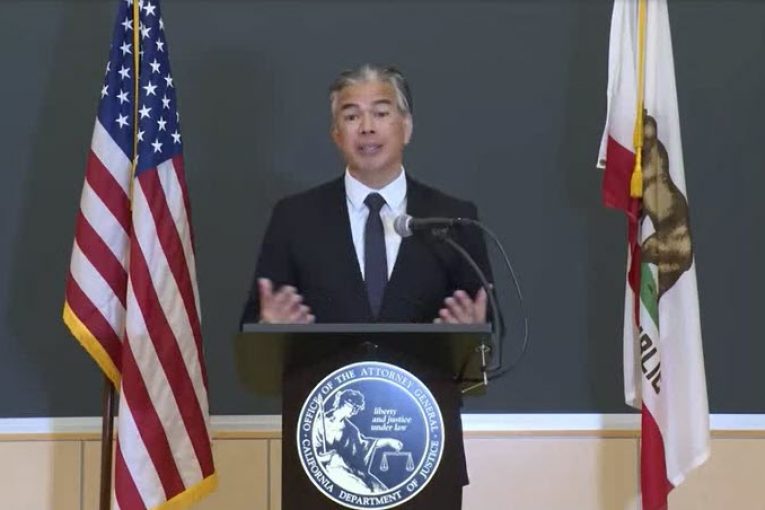

In a letter dated July 20, Attorney General Rob Bonta expressed serious concern over the proposed Parental Notification policy, emphasizing the potential infringements on students’ privacy rights and educational opportunities. The Attorney General’s Office is committed to protecting the rights and well-being of students in California schools.
“The protection of every student’s privacy and safety is of utmost importance, and that includes protecting their right to choose when, how, and with whom they share their gender identity. That is a personal decision for them, and them alone,” said Attorney General Bonta.
He added, “By allowing for the disclosure of a student’s gender identity without their consent, Chino Valley Unified School District’s suggested Parental Notification policy would strip them of their freedom, violate their autonomy, and potentially put them in a harmful situation. Our schools should be protecting the rights of all students, especially those who are most vulnerable, and should be safeguarding students’ rights to fully participate in all educational and extracurricular opportunities. I strongly encourage CVUSD to prioritize the rights and privacy of all their students.”
Full text of letter:
Dear Superintendent Enfield and Members of the Chino Valley School Board:
I write to share my serious concern regarding the proposed “New Board Policy 5020.1 – Parental Notification” scheduled for consideration on the agenda for the July 20 meeting of the Chino Valley Unified School District (“CVUSD”) Board of Education. The policy would, if enacted, require school officials to notify parents, without exception, whenever:
(1) a student requests to use a name or pronoun other than those listed on the student’s birth certificate or in official records; (2) a student requests to participate in programs or to use facilities that do not align with the gender stated in these records; or (3) when a student requests to change any information in their official or unofficial school records. (Item II.A.1, July 20, 2023 agenda, New Board Policy 5020.1—Parental Notification.)
As the California Department of Education has instructed, “Disclosing that a student is transgender without the student’s permission may violate California’s antidiscrimination law by increasing the student’s vulnerability to harassment and may violate the student’s right to privacy.” Courts have recognized that gender identity is a protected privacy right under the California and U.S. Constitutions. (See Whalen v. Roe (1997) 429 U.S. 589, 598–600 (avoiding disclosure of personal matters is constitutionally protected); see also Cal. Const. art. I, § 1 (listing privacy as an inalienable right).) Transgender identity is an “excruciatingly private and intimate” detail about oneself and is thus protected by the right to privacy. (Powell v. Schriver (2d Cir. 1999) 175 F.3d 107, 111–112.) And students do not waive their reasonable expectation of privacy simply by expressing their gender identity in school. (C.N. v. Wolf (C.D. Cal. 2005) 410 F.Supp.2d 894, 903 (holding that student had reasonable expectation of privacy in their sexuality, despite expressing their sexual orientation in school, protecting their sexuality from disclosure to their parents).) Infringements on privacy rights can only be justified by compelling state interests and must be narrowly tailored to serve those interests. (Lopez-Valenzuela v. Arpaio (9th Cir. 2014) 770 F.3d 772, 780.)
In addition to infringing upon student privacy, forced “outing” of students to their parents is very likely to result in significant emotional, mental, and even physical harm and subject students to discriminatory harassment. There are numerous applications of this policy that could violate the law, including: (1) where parents have threatened to harm the student if the student identifies as a gender different from the one assigned at birth, and (2) when a student’s family relationships are so fraught that the student expresses a significant likelihood that they may commit self-harm or suicide if their gender identity was disclosed to their parents.
Recognizing the significant harms that transgender students may suffer from being “outed” to their parents against their will, the California Department of Education recommends that schools “consult with a transgender student to determine who can or will be informed of the student’s transgender status, if anyone, including the student’s family.” The California Department of Education further instructs, “schools are required to respect the limitations that a student places on the disclosure of their transgender status, including not sharing that information with the student’s parents,” subject to “rare exceptions.” The guidelines recommend disclosure of a student’s status to parents only in “those very rare circumstances where a school believes there is a specific and compelling ‘need to know’” and that the school give the student advance notice before informing the parents. Board Policy 5020.1 contradicts this guidance in almost every respect.
My office has a substantial interest in protecting the legal rights of children in California schools and protecting such children from trauma and exposure to violence. I will not hesitate to take action as appropriate to vigorously protect students’ civil rights.
Sincerely,
ROB BONTA
Attorney General

I would think that some parents (other than the parent of the transgender student) would be concerned about #2 above, and would want to at least be notified of this – if not prevent it altogether.
And I have yet to see any “legitimate” reason to totally-discount their (or their kids’) possible concerns.
For that matter, I would think that their own children “might” tell them that (for example), “there’s a boy using the girl’s locker room or restroom, or is on the girl’s soccer team”. And the attorney general (or school district) is not going to be able to prevent those conversations, nor will it be able to require them to use “approved” pronouns, etc.
For that matter, they’re also not going to be able to control what kids say to each other regarding issues like this.
Can’t help but think that this is (one way or another) ultimately headed to court – for a number of potential reasons. And I wouldn’t assume that the state would necessarily “win”.